10 Myths About Sharks You'll Want to Clear Up With Your Students
Sharks are one of the nearly popular subjects when it comes to studying sea life. Yet at that place are still a lot of myths out in that location about them that can get out students dislocated or even scared! It's fourth dimension to set up the record directly. The adjacent fourth dimension you do a shark unit of measurement in your classroom, make sure your students aren't committing to memory these common myths!
MYTH one: Sharks are huge.
There are and then many sharks in the earth—about 400+ species, and maybe fifty-fifty others that scientists accept yet to discover. About sharks are smaller than an average man. The next fourth dimension y'all proceed a field trip to an aquarium or museum, endeavour to find a shark and actually look at and discuss its size with your students.
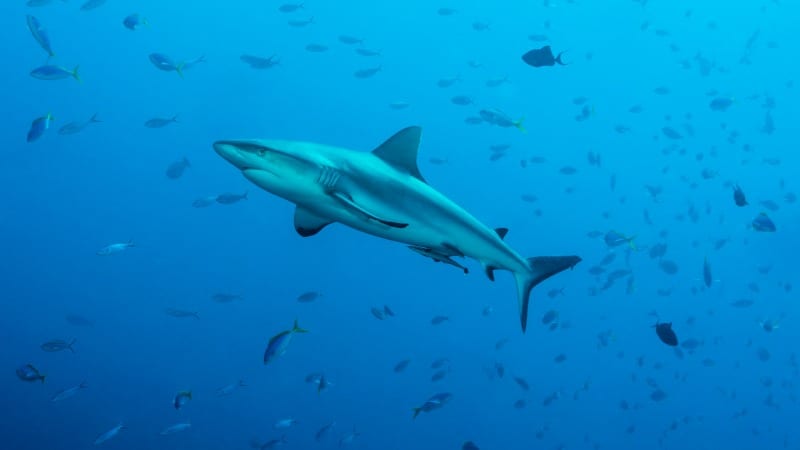
This is a grey reef shark, which is about six feet on average.
MYTH 2: Sharks are dangerous.
Can sharks be unsafe? Sometimes—mostly when they're scared. Are they usually dangerous? Non actually. Have your students inquiry "deadly animals" in the world and then report back with their results. Nosotros dearest this article virtually 25 things more likely to kill you than a shark, which includes coconuts, mosquitoes and cows.
MYTH three: Shark attacks are common.
Y'all should E'er be aware of your environs when you're in the ocean, but shark attacks aren't really all that common. In the United States, there are just 16 attacks a year on boilerplate. Virtually are done by slap-up white sharks.
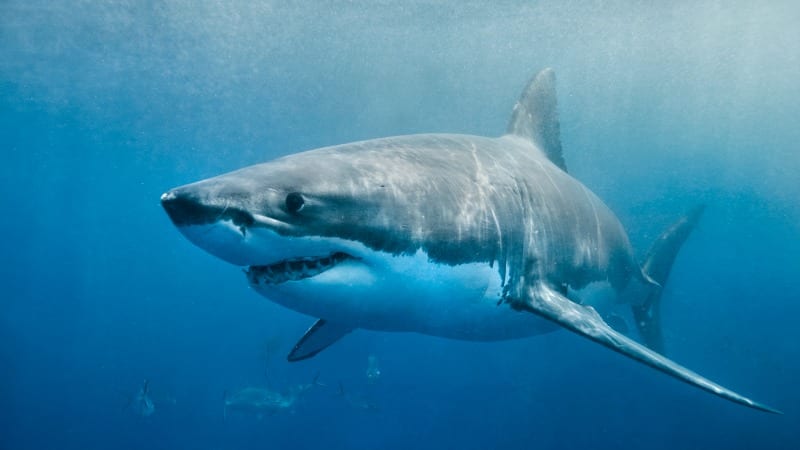
This is a great white shark, which is the species featured in Jaws.
MYTH four: Sharks like to consume people.
There's a misconception that all sharks eat meat, therefore they want to eat people. While many sharks are carnivores, preying on both big and small marine life as part of their daily diet, there are some that don't swallow meat at all. The whale shark is the largest shark in the world, and information technology actually eats plankton!
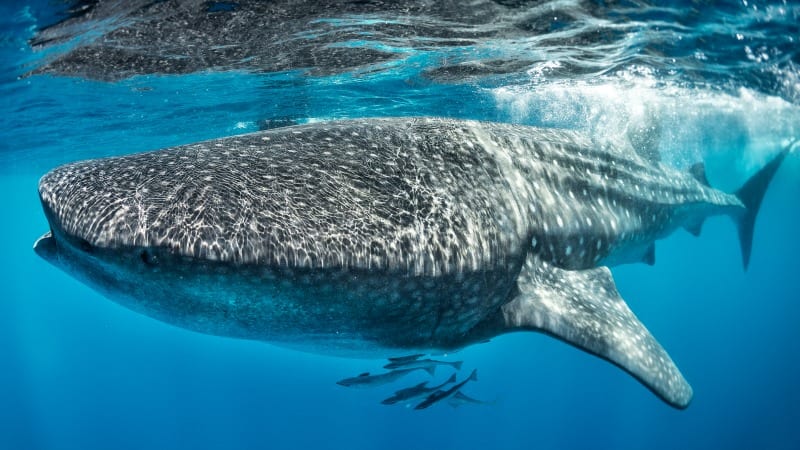
The largest whale shark on tape was 41 anxiety!
MYTH 5: Sharks are scary.
Humans seem to beloved being scared past sharks. Good ol' Jaws and the creepy music helped popularize that, but the truth is sharks shouldn't be seen as scary. They are fascinating, astonishing, beautiful creatures. Have your students inquiry some of those cool and fascinating facts to share with their peers.
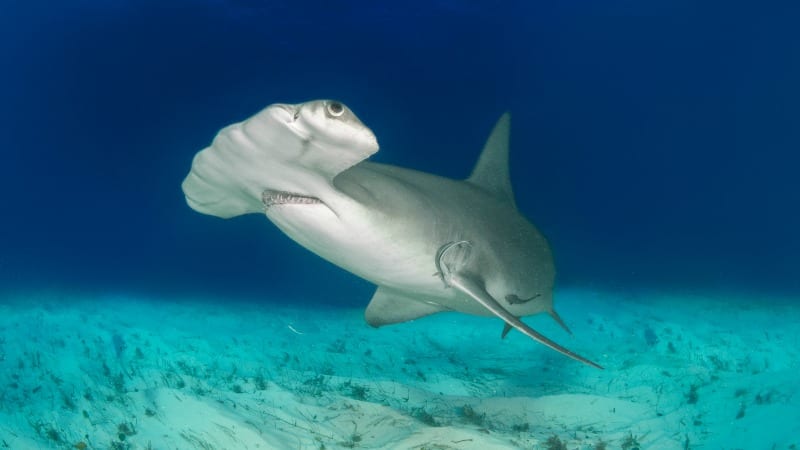
Hammerhead sharks are some of the coolest around!
MYTH 6: Sharks but live in the sea.
Become ready to have your listen blown! While most sharks do live in saltwater (aka the oceans), there are some that live in freshwater. For case, balderdash sharks live in both ocean and fresh water. They take this astonishing power chosen osmoregulation—it's pretty absurd. Wait information technology up with your students!
MYTH 7: Sharks aren't very smart.
If you want to give your students a compliment, tell them they're as smart as a shark! These creatures are some of the smartest in the ocean. Bank check out this article that backs this up.
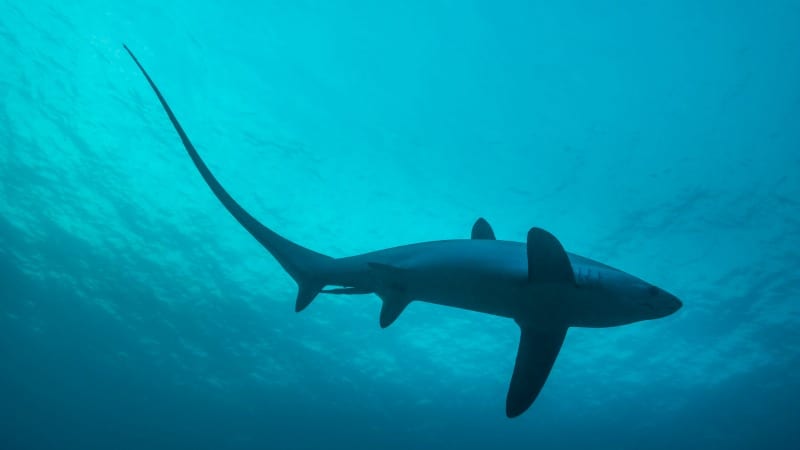
This is a thresher shark, which lives deep in the ocean.
MYTH 8: Sharks hang out at the tiptop of the water.
This is another myth that stems from movies—y'all know, the shark fin snaking through the water menacingly! But most sharks don't stick around the surface. Yous'll probably never see them up close because they're deep down in the h2o.
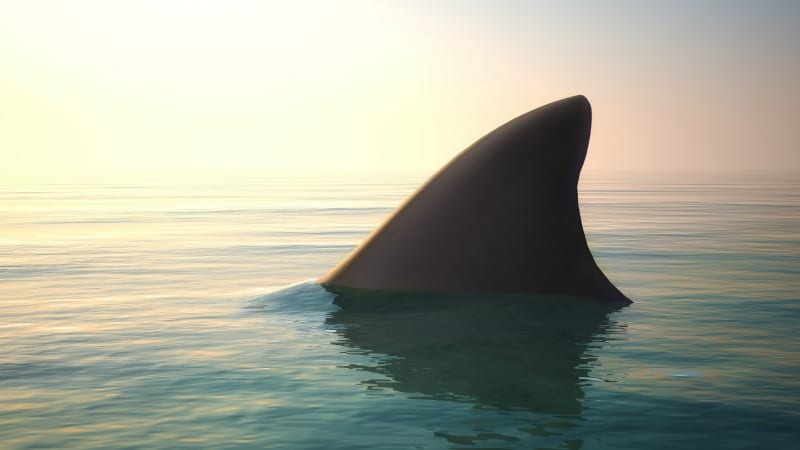
It'south not really that common to see a shark fin similar this out of h2o.
MYTH 9: Sharks have a terrible sense of smell.
Look—where did this myth come up from? It's a terrible one and not true at all. They accept an first-class sense of smell and tin sometimes notice casualty upwards to one-fourth of a mile away.
MYTH ten: Sharks lay eggs.
This one is true … and not truthful. Yes, some sharks lay eggs, simply then others give birth live! Have your students research this to practise a compare-contrast between species.
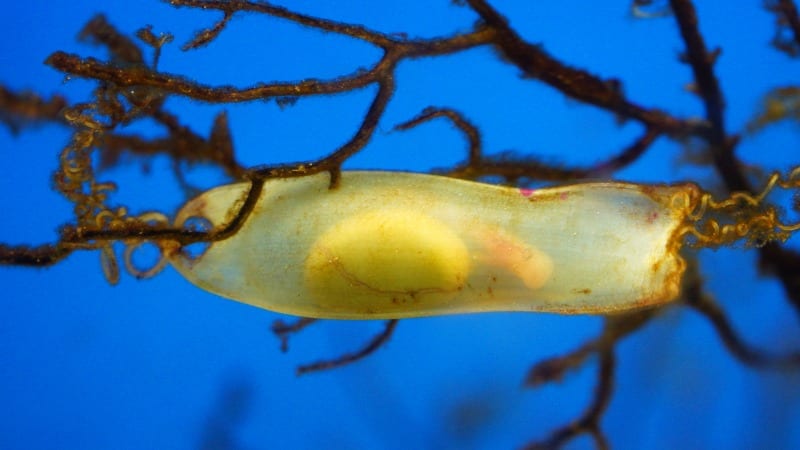
This will eventually be a mutual dogshark.

Source: https://www.weareteachers.com/myths-about-sharks/